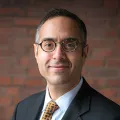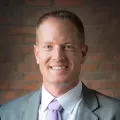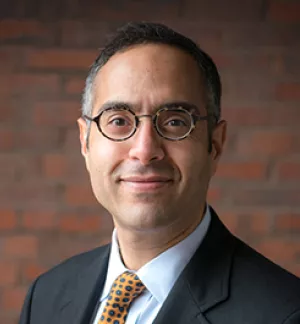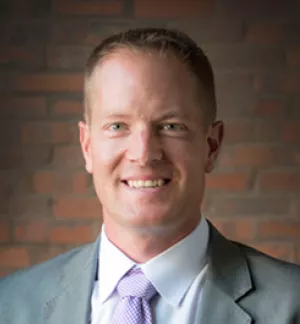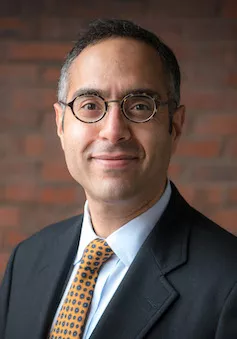
Tarek Masoud is a Professor of Public Policy and the Sultan of Oman Professor of International Relations at Harvard Kennedy School and Faculty Chair of the Belfer Center’s Middle East Initiative. His research focuses on the political development in Arabic-speaking and Muslim-majority countries. He is the author of "Counting Islam: Religion, Class, and Elections in Egypt" and co-author of "The Arab Spring: Pathways of Repression and Reform," and he has authored a number of articles and book chapters. A former Carnegie Scholar, he is a trustee of the American University in Cairo and a member of the editorial board of the "Journal of Democracy."
[Editor's Note: This article was written in February 2020]
When Tarek Masoud’s family relocated from Michigan to Saudi Arabia in the mid-1980s, his parents told their children it was for their own good – and that the move was permanent. Masoud’s parents were determined to raise their family in a devout environment free of the West’s cultural decadence. But their thinking changed after the Persian Gulf War. “My parents realized that the social ills they tried to flee were everywhere,” he recalls, and they insisted on first-rate schools. Soon thereafter, Masoud and his older brother were back in America, enrolled at Phillips Exeter Academy. It’s fair to say the five sons took their studies seriously: four of them go by “Dr. Masoud” now.
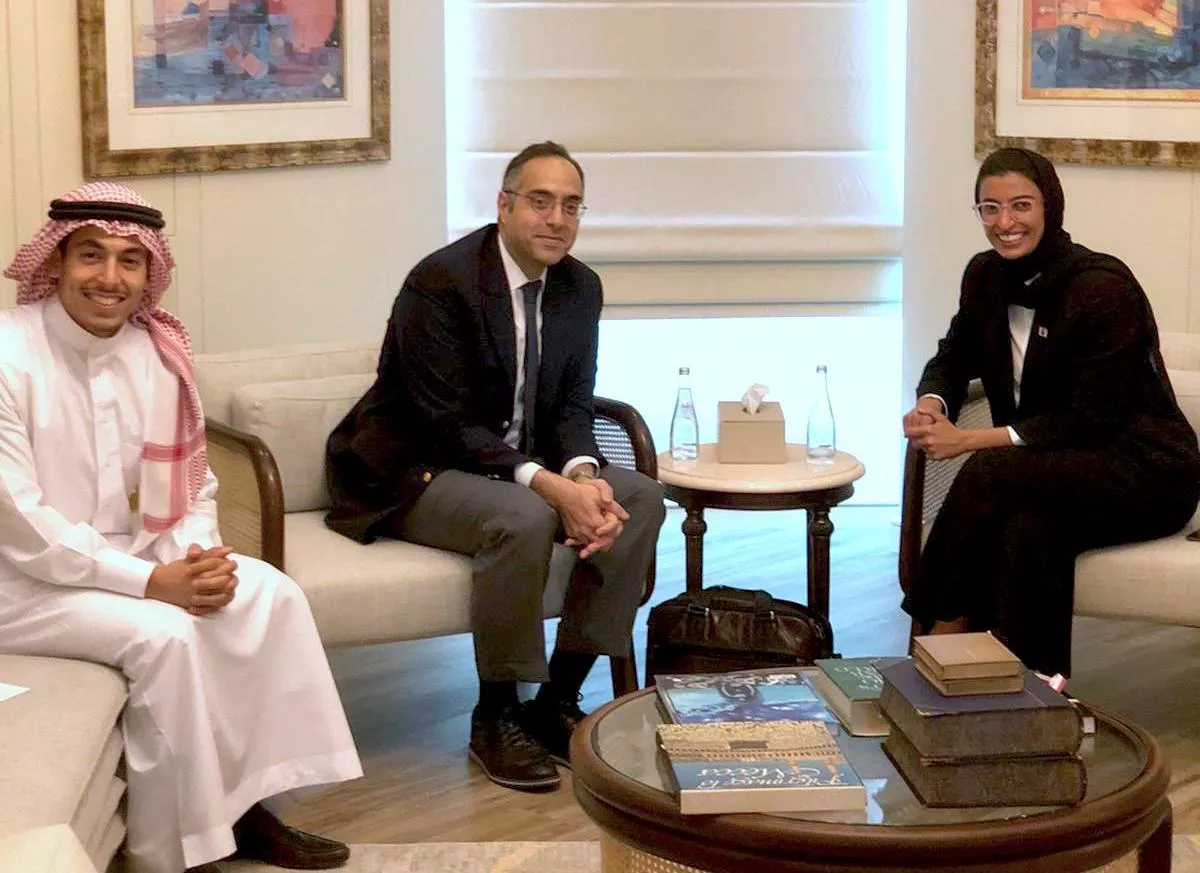
Today, Masoud brings his personal experience in both the Midwest and the Middle East to help the Belfer Center and broader Harvard community build bridges across distance and difference. In his classes at Harvard Kennedy School, Masoud works hard to help students question their assumptions and correct misconceptions.
“Many students think that everyone in the Middle East is an Arab, a Muslim, oil rich, and oppressed by dictators,” Masoud says. “Of course, that is not true. One thing I try to do in my teaching is awaken students to the tremendous diversity of the Middle East in religion, economics, and politics.”
Another preconception students hold is that the region is in an almost perpetual state of decline. This is understandable, Masoud says, since the overwhelming majority of headlines about the Middle East in Western media are about conflict. Thinking of the region only in terms of oil and terrorism, Masoud says, is a profound mistake. “The Middle East is very complex, but it has pockets of innovation and progress.” And there are important structural changes taking place. “Leaders in the region are learning how important it is to increase their government’s capacity to deliver services that actually improve citizens’ welfare.”
The most positive trend in recent years, Masoud says, is the rise of movements – some from above and some from below – all geared toward improving the state of the Arab world. The Middle East has long faced problems such as political accountability, he says, but now the region is beginning to face up to them.
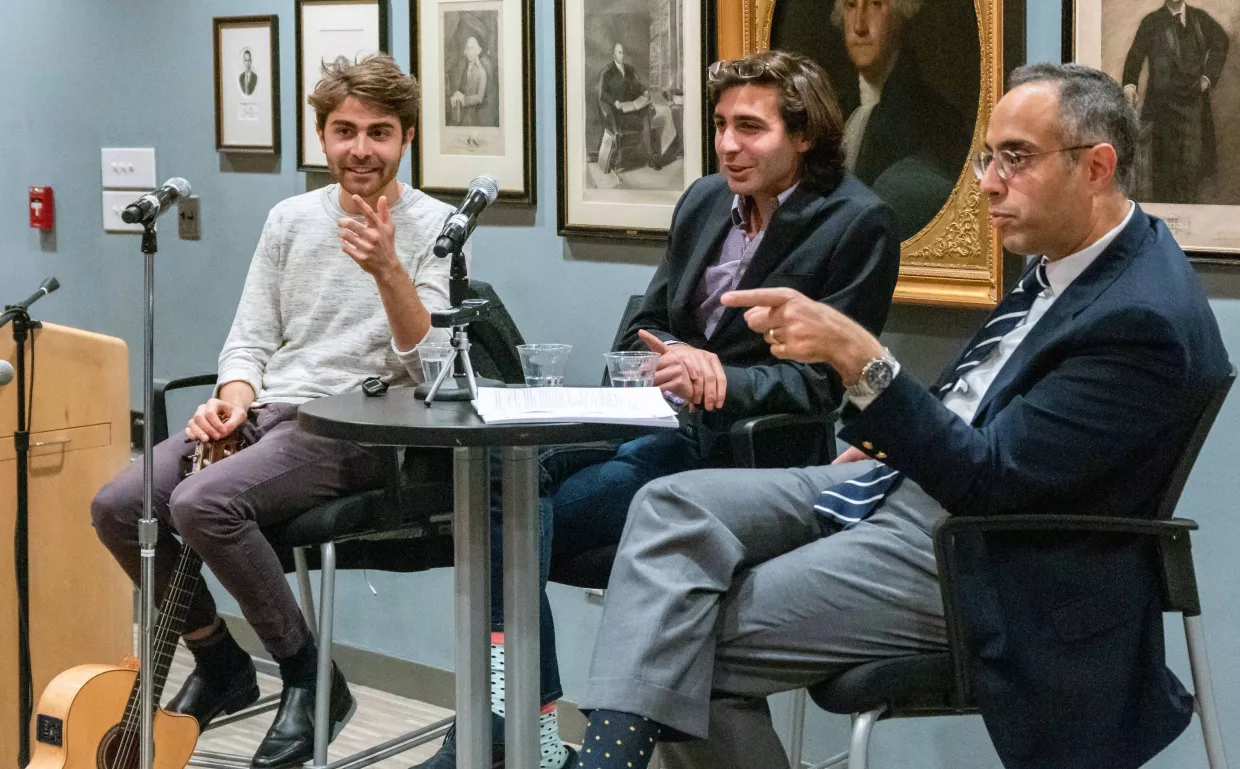
Masoud is also helping Harvard students come face-to-face with the region through a field course called “Leadership and Social Transformation in the Arab World.” It’s intended to help students get a first-hand perspective on efforts Arab countries are making to break out of the grim dynamics that have held them back for a half century. “It becomes a lot harder for students to be hopeless about the Middle East when they’ve been there,” Masoud says. When students break out of the caricatures – 9/11; Saddam Hussein; Osama bin Laden – and meet real people trying to make change, they come away with energy and optimism about the region. They begin to see that the Arab world is a contributor to solving humanity’s common problems.
On weekends, Masoud often takes his teenage boys to Celtics games, plays folk songs on his guitar, or does odd jobs around the 120-year old house he owns with his wife, Kristin. But the majority of his time is dedicated to growing the Middle East Initiative. “This is one of the most important ways in which HKS and Harvard engages with the contemporary Middle East,” he says. “It’s a bridge. My goal to make it into a superhighway.”
Burek, Josh. "Spotlight: Tarek Masoud." Belfer Center Newsletter, Belfer Center for Science and International Affairs, Harvard Kennedy School (Spring 2020).

